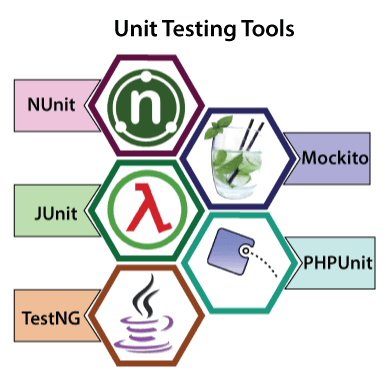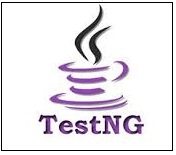When we have to find and authenticate the particular module or unit of the code, we need the unit testing tools. With the help of these tools, we can build secure design and documentation and decrease the bug count.
Generally, unit testing is a manual process, but now some of the organization has automated the unit test with the help of these tools. By using unit testing tools, we can cover the maximum coverage, performance, compatibility, and integration testing.
All the unit testing tool is implemented as a plug-in for the eclipse. Unit testing tools are used by the developers to test the source code of the application or to achieve the source code of the application.
Following are the most commonly used tools of unit testing:
- NUnit
- JUnit
- TestNG
- Mockito
- PHPUnit

NUnit
One of the most commonly used unit testing tools is NUnit. It is an open-source tool and initially ported from the JUnit, which works for all .Net languages. NUnit was written entirely in the C# language and fully redesigned to get the advantage of many .Net language features. Like custom attributes and other reflection related capabilities.

Features of NUnit
- It powerfully supports the data-driven tests.
- In this, we can execute the tests parallelly.
- It allows assertions as a static method of the asset class.
- It uses a console runner to load and execute tests.
- NUnit supports various platforms such as Silverlight, Xamarin mobile, .NET core, and compact framework.
JUnit
It is another open-source unit testing framework, which was written in Java programing language. It is mainly used in the development of the test-driven environment. Junit offers the annotation, which helps us to find the test method. This tool helps us to enhance the efficiency of the developer, which provides the consistency of the development code and reduces the time of the debugging.

Feature of JUnit
- It offers the assertions for testing expected results.
- In this tool, we can quickly develop a code that enhances the quality of the code.
- This tool can be structured in the test suites, which have the test cases.
- To run the test, it gives the test runners.
- It will take less time to run the test cases.
For more details about the Junit, refers to the below link:
https://www.javatpoint.com/junit-tutorial
TestNG
It is an open-source tool, which supports Java and .Net programming languages. Test Next Generation (TestNG) is an advance unit testing tool, which is stimulated from JUnit and NUnit testing frameworks. Still, few new functionalities (Additional Annotation, Parallel Execution, Group Execution, Html Report, and Listener) make a TestNG more powerful tool.
For the automation process, TestNG will be used to handle the framework component and achieve the batch execution without any human interference.

Feature of TestNG
Following are the some commonly used features of TestNG:
- TestNG support various instance of the same test cases, parameterized, annotation, data-driven, functional, integration, and unit testing.
- In the case of development, TestNG will be used to develop a unit test case, and each unit test case will test the business logic of the source code.
- It will provide a flexible test configuration.
- It will have the Dependent methods for application server testing
- With the help of TestNG, we have full control over the test cases and the execution of the test cases.
- It is supported by multiple plug-in and tools such as IDEA, Eclipse, and Maven, and so on.
For more details about the TestNG tool, refers to the below link:
https://www.javatpoint.com/testng-tutorial
Mockito
It is a mocking framework that is used in the unit testing, and it was written in the Java programing language. Mockito is also an open-source tool introduced by the MIT (Massachusetts Institute of Technology) License.
With the help of Mockito, we can develop the testable application. The primary objective of using this tool is to simplify the development of a test by mocking external dependencies and use them in the test code. It can be used with other testing frameworks such as TestNG and Junit.

Feature of Mockito
- It will be used to support exceptions.
- With the help of the annotation feature, we can produce the mocks.
- We do not need to write the mocks object on our own.
- It will support return values.
- It provides multiple methods like verify(), mock(), when(), etc., which are helpful to test Java applications.
For more details about the Mockito tool, refers to the below link:
https://www.javatpoint.com/mockito
PHPUnit
Another unit testing tool is PHPUnit, which was written in PHP programing language. It is an instance of the xUnit architecture and based on the JUnit framework. It can generate the test results output in many various formats with JSON, JUnit XML, TestDox, and Test anything protocol. We can run the test cases on the cross-platform operating system.

Features of PHPUnit
- PHPUnit will provide the logging, code coverage analysis.
- Its development is hosted on GitHub.
- PHPUnit uses assertionsto validate the performance of the specific component.
- With the help of this tool, developers can identify the issues in their newly developed code.



0 Comments